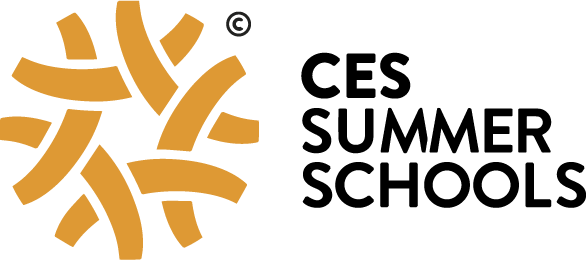Maria Virgínia Brás Gomes was Born in Goa, India. Member of UN Committee on Economic, Social and Cultural Rights since 2004. From 2008 to 2010 she served as Vice-chair of the Committee, from 2012 to 2014 as Rapporteur and from 2017 to 2018 as Chair. She was co-rapporteur for the Committee’s General Comments nº 19, on the right to social security, and nº 23, on the right to just and favourable conditions of work.
She works as Senior social policy adviser in the Ministry of Employment, Solidarity and Social Security of Portugal and is Chair of the Board of the Portuguese UNICEF Committee. She is also a Distinguished Guest Lecturer in the LLM Program in Intercultural Human Rights at the St. Thomas University School of Law (2018); Invited expert at the School of Regulation and Global Governance at the Australian National University / College of Asia & the Pacific (2015); Faculty member of the Leadership Institute in Women’s Economic, Social and Cultural Rights (2011 to 2015). She has participated in a number of national and international conferences on economic, social and cultural rights, social security, and sustainable development, and conducted training in treaty body reporting and on human rights in Africa, Asia and Europe, on behalf of the Office of the High Commissioner for Human Rights.
The Associação Renovar a Mouraria was created in 2008 by a group of residents with the aim to revitalise the historical neighbourhood of Mouraria located in the centre of Lisbon. This is a non-profit private organisation with public utility status.The Associação Renovar a Mouraria promotes a wide array of activities with the major goal to strengthen the social inclusion of various communities by fostering cultural interaction and mutual support. It undertakes its activities mainly at the Communitarian House in Mouraria, a former derelict building which was thoroughly revitalised. Teaching Portuguese as a foreign language for immigrants, literacy education, study support for children and youngsters, legal support services, traditional Chinese medicine or the solidarity hairdresser are its leading community development projects. However, the scope of activity of this Association goes much beyond the walls of the Communitarian House, with projects such as the community newspaper Rosa Maria, guided tours with local national and immigrant tour guides (Migrantour) and the Atelier Ideal, which aims at improving the image and communication of local trade.
Paulo Pena, studied journalism in Lisbon and in Washington DC. For years he was a reporter, and editor, of the weekly newsmagazine Visão, since 2014 he has been senior reporter at the daily newspaper Público. Paulo has won several awards (for his reports on the Genoa G8 Summit, on Iceland and about labour market reforms), most recently the 2013 Gazeta journalism award for his reporting on the Portuguese banking scandal, also published as a book under the title “Jogos de Poder” (“Power Games”) (2014). Paulo lives in Lisbon.
Maria Lúcia Amaral, The Ombudsperson (Since November 2017) was born in Angola. She is a Law Professor in the Faculty of Law of the Universidade Nova de Lisboa and was a Justice of the Constitutional Court between April 2007 and July 2016. She dedicated her academic life to the study and teaching of Public Law, especially Constitutional Law. She is an author of studies in this domain and a member of several international scientific associations. Maria Lúcia Amaral was elected, by the Parliament, as the Portuguese Ombudsman on October 20th 2017 and took office on November 2nd the same year.
Ana Rita Gil has graduated in Law at the Faculty of Law of the University of Coimbra (2003), where she completed a postgraduate degree in Child Protection (2005). She holds PhD in Law, awarded by the New University of Lisbon in 2016, with a thesis on Human Rights of Immigrants. She works in the areas of Human and Fundamental Rights, in particular Migrants, Refugees and Children, and is the author of scientific works published in Portugal and abroad. She is Professor of the Masters in Law at New University of Lisbon, and in the Faculty of Law of the Portuguese Catholic University. She was Advisor to the Judges’ Office of the Constitutional Court (2010-2018).
Aljube Museum - Resistance and Freedom is dedicated to the history and memory of the fight against the dictatorship and the recognition of resistance in favour of freedom and democracy in Portugal. It is a musealised site and a historical museum that intends to fill a gap in the Portuguese museological fabric, by projecting the appreciation of the memory of the fight against the dictatorship onto the construction of an enlightened and responsible citizenship, and by taking on the struggle against the exonerating and, often, complicit silencing of the dictatorial regime that governed the country between 1926 and 1974.
Luís Farinha is the Director of the Aljube Museum Resistance and Freedom and a researcher at the Institute of Contemporary History (FCSH-UNL).
Diana Andringa was born in Dundo, Lunda-Norte, Angola. She came to Portugal in 1958. In 1964, she enrolled at the Faculty of Medicine of the University of Lisbon, dropping out later to dedicate herself to Journalism. In 1968, she attended the 1st course in Journalism implemented by the Portuguese Union of Journalists, joining Viva Mundial journal, quitting the job as a result of a collective resignation. Unemployed, she was a marketing copywriter until she was arrested by PIDE, in January 1970. Sentenced to 20 months prison term for supporting the independence of Angola, she then restarted her career in journalism. From 1078 to 2001, she was a journalist at RTP. She was also a columnist at Diário de Notícias, RDP and Público, and short-term associate director of Diário de Lisboa. Currently, she is an independent documentary filmmaker - Timor-Leste, O sonho do Crocodilo; Guiné-Bissau: As duas Faces da Guerra; Dundo, Memória colonial, Tarrafal: Memórias do Campo da Morte Lenta. She re-attended University, concluding her PhD degree in Sociology of Communication at ISCTE, in 2013. She is a researcher at CES project CROME - Crossed Memories, Politics of Silence: The Colonial-Liberation Wars in Postcolonial Times.
Gauri van Gulik is Amnesty International’s Europe Director, responsible for leading all research, campaigning and communications in the EU, the Balkans and Turkey. Before joining Amnesty International, she worked for Human Rights Watch for seven years as a researcher and head of global advocacy for women’s rights. Before that she worked for Marie Stopes International on reproductive rights and for the European Parliament civil liberties committee. She has a background in European law, comparative law and a second masters in human rights and democratization from the European Master's Programme in Human Rights and Democratisation (EMA) in Venice.
Paulo Fontes, Amnesty International Portugal, Head of Communication and Campaigns, is the director of communication and campaigns at Amnesty International - Portugal. He has worked as a researcher at the University of Porto, as a teacher and as project manager in communication and marketing. His background is in communication and marketing, with a focus on alternative strategies for public engagement in non-commercial contexts, which is the scope of his PhD research.
Marta Ramos, ILGA Portugal (NGO working on LGBTI rights) is currently the Executive Director of Associação ILGA Portugal. With a background in Law and a major in Human Rights, she has previously worked at the Office of the Council of Europe Commissioner for Human Rights, the European Parliament and the Portuguese Commission for Citizenship and Gender Equality. Marta is a member of Associação ILGA Portugal since 2011, where she has developed specific work and expertise in the area of combating and raising awareness on anti-LGBTI hate crimes, in particular via the projects Observatory on Discrimination and UNI-FORM.
Aline Flor is a journalist at Público and author of "Do Género", a podcast about women and equality. She writes about gender equality, the feminist movement and the Istanbul Convention, and has produced "A Europa que conta", a podcast about the everyday life impact of European policy. She collaborates with the Portuguese journalists' union in a media literacy project running in public schools. She holds a Journalism degree from University of Porto (2011) and a Masters degree in documentary film by the Polytechnic Institute of Porto (2014).
Thomas Coombes is a global communications strategist who aims to make a difference by changing minds. He has developed an approach called Hope-Based Communications to help the human rights movement develop new narratives for social change. Currently Head of Brand and Deputy Communications Director at Amnesty International, Thomas’s personal mission is to help NGOs communicate as effectively as politicians and businesses. Before joining Amnesty International, he spent a decade working in communications for the anti-corruption NGO Transparency International, the European Commission and PR firm Hill & Knowlton. Thomas is a proud Global Campus alumni with an EMA in Human Rights.

